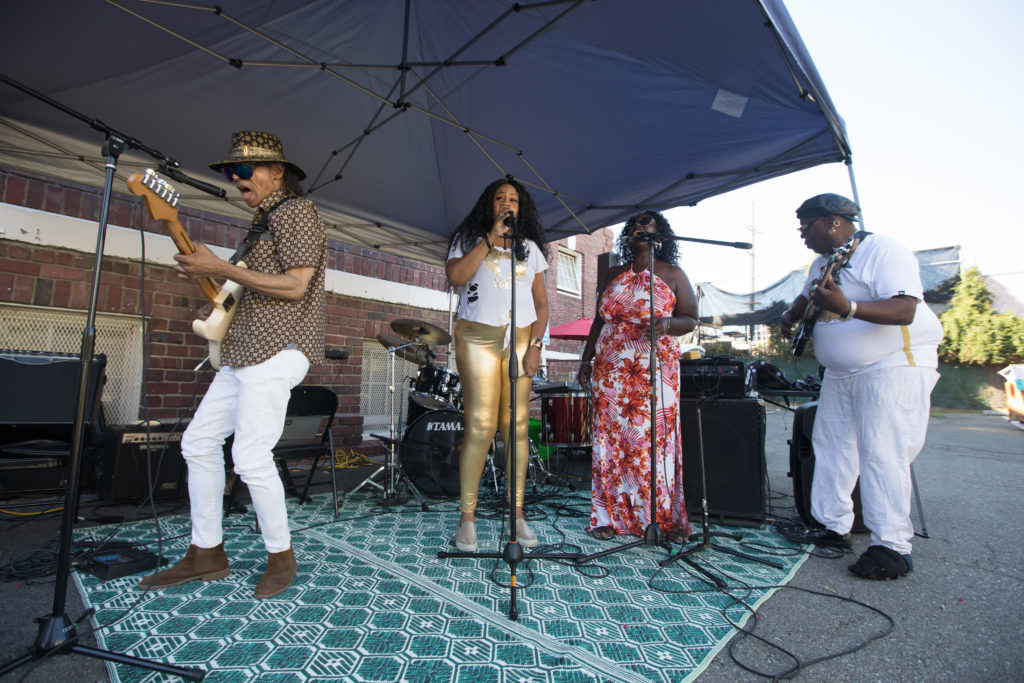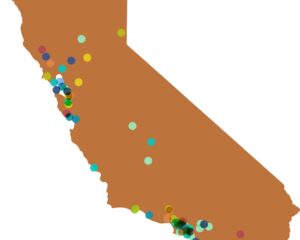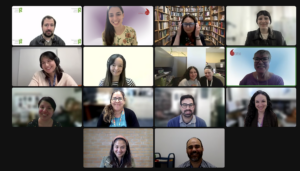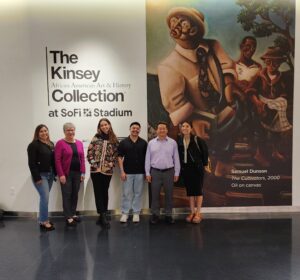“How do we get to know our neighbors?”
This is the question that artist Sue Mark kept returning to as she compiled eight new reference books about African American history in Oakland. Right in time for October, the month celebrated by the National Archive as “American Archives Month,” these new books are now available through the Commons Archive, “a permanent neighborhood memory bank at the Golden Gate Branch Library in West Oakland.” Titles include:
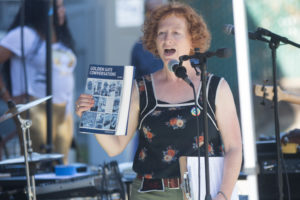
A Renovator’s History, Seth Melchert
Blacks in Oakland: 1852–1987, Donald Hausler
Community Profile: Golden Gate Neighborhood, Professor Edward Blakely & Students
Golden Gate Conversations, Sue Mark (oral histories supported by a grant from California Humanities)
Golden Gate Neighborhood Conditions, Professors Neema Kudva, David Driskell & Students
Golden Gate Walking Tour, Donald Hausler
I Must Not Forget, Eugene Lasartemay
On Becoming A Historic Resident, Brock Winstead
Compiled over seven years, the collection is the result of many voices and efforts. “I did not write the books,” insists Sue. Conservation and curation better describes her approach. During the course of her research Sue rediscovered the diary of Eugene Lasartemay, a founder of the East Bay Negro Historical Society (EBNHS) – today the African American Museum & Library at Oakland (AAMLO). Inspired to publish the diary, Sue met weekly with Eugene Lasartemay’s grandson Mark Lastartemay to process and contextualize the pages. In the end Sue and Mark published the diary nearly in situ, scanning the original diary pages to preserve Eugene Lasartemay’s handwriting and adding family photos as illustration.
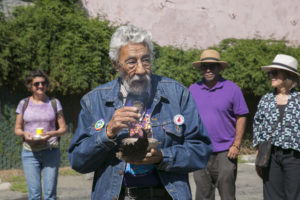 At the Book Launch Celebration last Saturday, September 21, a neighborhood feel permeated the parking lot of Golden Gate Library. Attendees carried their laundry baskets between zine making stations and a breezy reading lounge where they could have the first go at reading the books. Overseeing the story collection table was Sean Dickerson, archivist at African American Museum and Library at Oakland (AAMLO), who was key in procuring photos and archival materials for the books. Shaded tents encircled a stage where a North Oakland soul band, Back In Session, “a group of neighborhood guys who used to play together,” reunited for their first performance in 20 years. Don Mitchell, the band organizer, has lived in the Golden Gate since the late 1960s. Library Assistant Sharon Vaughn chimed in to sing Mr. Rogers’ “Won’t You Be My Neighbor?” Despite the sweltering 80 degree temperatures, the lot rarely contained fewer than 40 people enjoying ripe stone fruit from Oakland’s Phat Beets Farm and oatmeal cookies from Bakesale Betty’s.
At the Book Launch Celebration last Saturday, September 21, a neighborhood feel permeated the parking lot of Golden Gate Library. Attendees carried their laundry baskets between zine making stations and a breezy reading lounge where they could have the first go at reading the books. Overseeing the story collection table was Sean Dickerson, archivist at African American Museum and Library at Oakland (AAMLO), who was key in procuring photos and archival materials for the books. Shaded tents encircled a stage where a North Oakland soul band, Back In Session, “a group of neighborhood guys who used to play together,” reunited for their first performance in 20 years. Don Mitchell, the band organizer, has lived in the Golden Gate since the late 1960s. Library Assistant Sharon Vaughn chimed in to sing Mr. Rogers’ “Won’t You Be My Neighbor?” Despite the sweltering 80 degree temperatures, the lot rarely contained fewer than 40 people enjoying ripe stone fruit from Oakland’s Phat Beets Farm and oatmeal cookies from Bakesale Betty’s.
A number of the neighbors Sue had interviewed for Golden Gate Conversations were at the event, as well as authors of the reference titles. Don Hausler and Nancy Smith, two of the founders of the Emeryville Historical Society were there alongside Mark Lasartemay, who shared a few words about his grandparents Eugene and Ruth Lasartemay, co-founders of the EBNHS along with Jessie and Marcella Ford. “They taught me to love and respect everybody,” said Mark, who acted as his grandparents’ caretaker for many years. “When people come to your house, assume they are hungry and tired.”
Before this crowd of neighbors, Susan Anderson, Director of Library, Collections, Exhibitions, and Programs at the California Historical Society, gave a talk on the history of the East Bay Negro Historical Society (now AAMLO), which operated out of Golden Gate Library from 1982 to 2002 and cautioned against “the danger of social forgetting.” Charmingly, both the AAMLO building—at 459 16th Street in downtown Oakland—and The Golden Gate Library were founded in the 1900s with a gift from Andrew Carnegie. Oakland is home to six Carnegie libraries.
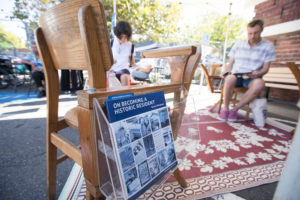
Befitting of a public history project nursed in a public library, the Golden Gate reference books are not for sale. To read these books, residents may visit AAMLO, The Oakland History Room, or Golden Gate Library. At Golden Gate Library, the reference room has just installed antique library chairs refurbished by Bruce Douglas, Sue Marks’ engineer husband. With the addition of plexiglass side saddles, Douglas designed a chair which can both display the books and offer a dedicated place to read them.
Commons Archive is still collecting neighbor stories and wants to hear yours. To contribute a memory card, visit Golden Gate Library during regular business hours.
Learn more about Commons Archive.
IMAGES: Minoosh Zomorodini and Douglas Zimmerman.
Blog written by Kirsten Vega with Claudia Leung.

